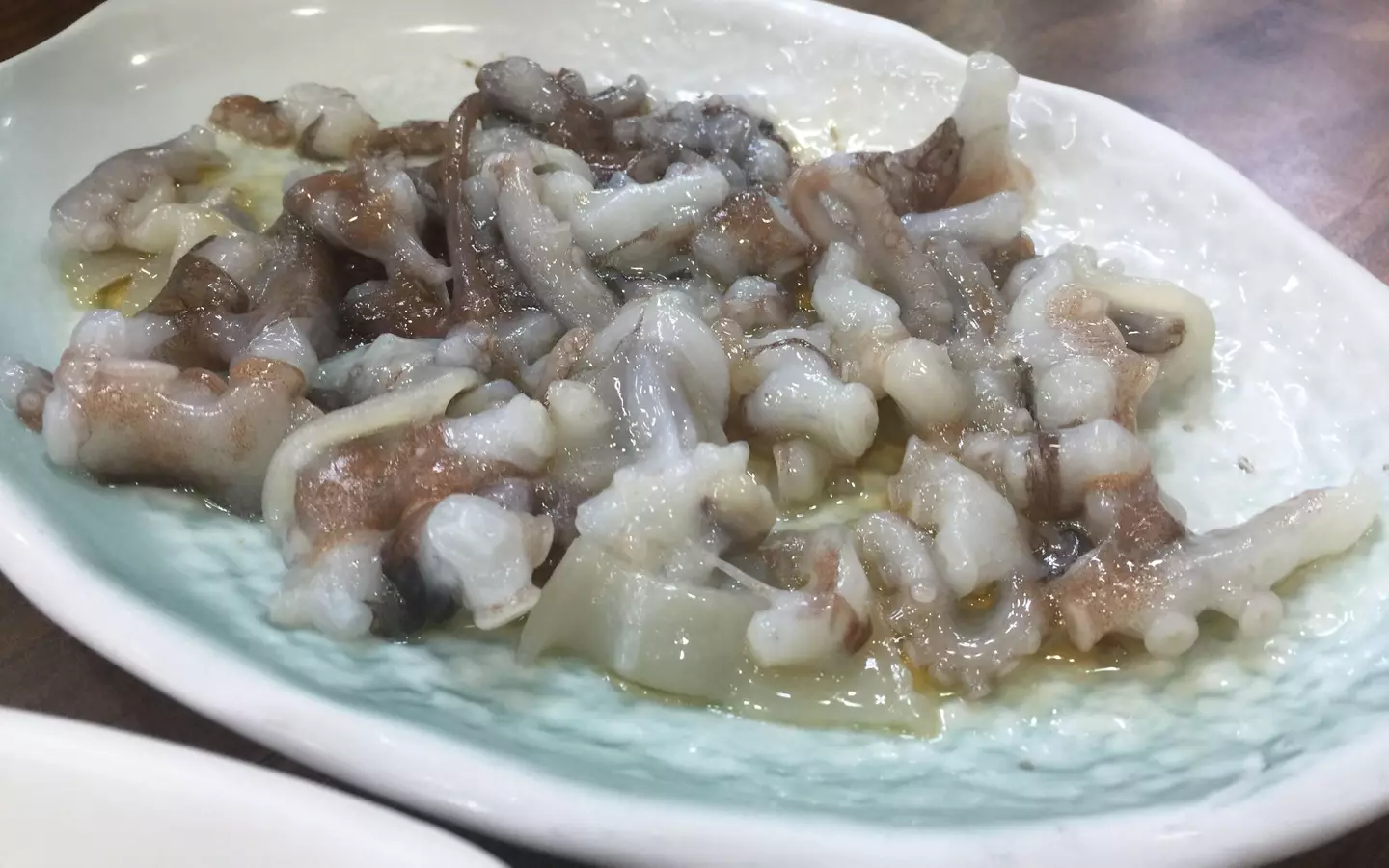.png)
A man has died after choking on a live octopus - a delicacy in South Korea.
The 82 year old man, passed away choking on a piece of octopus, known as san-nakji, with its tentacles still moving in the southern city of Gwangju, as per the Korea Herald.
Emergency services arrived on the scene after they were called around 11.38 am.
They began resuscitating the man before he was transported to a local hospital, where he was later pronounced dead.
Advert

According to Banned, san-nakji is served with sesame oil, sesame seeds and ginger.
Records show that the delicacy has been around since 57 BC.
Several incidents of people choking on san-nakji have been reported.
Three individuals have died of asphyxiation from eating live octopus between 2007 and 2012.
Another two deaths occurred in 2013, while another incident occurred in 2019 involving a man in his 70s.
For years, animal rights activist group PETA has urged for the practice of eating live animals - especially baby octopuses - to be prohibited in the US.
While eating live octopus isn't as common in the US as in South Korea, restaurants in California and New York are known to serve the exotic dish.
In 2016, PETA released an open letter along with a video of a chef severing the limbs of a live octopus at T Equals Fish, a Koreatown sushi restaurant in Los Angeles.
"T Equals Fish is just one of over a dozen restaurants in California and New York that mutilate and serve live octopuses and other animals. Restaurants “prepare” live shrimps by cutting their tails off and plating them right next to their moving bodies or by tearing off their protective exoskeletons so that diners can bite right into their flesh," they said in a statement.
They added that Lobsters’ tails are also torn off, prepared 'sashimi style', right next to their mutilated still-living bodies, for the 'amusement of patrons'.
The petition went onto to say that as these marine animals have an advanced nervous system, they feel extreme pain.
"Shrimps, lobsters, and other crustaceans fulfill all of the 'criteria' of pain sensation, including having a developed nervous system and exhibiting behaviors like wound-guarding and heightened protectiveness—just as a dog, pig, or primate would do," they continued.
Topics: News, Food and Drink, Animals
